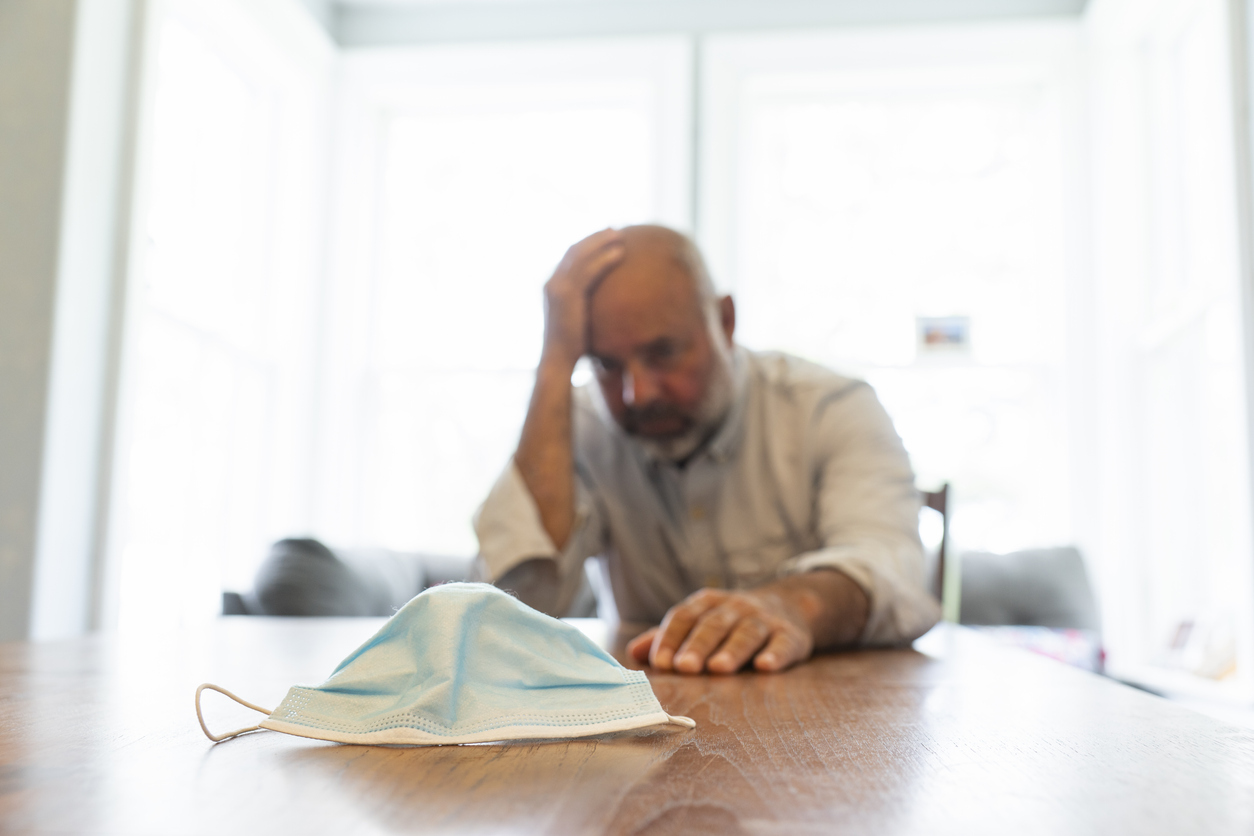
By Alan S. Kliger, MD, Clinical Professor of Medicine, Yale School of Medicine, and Chair, Excellence in Patient Care Advisory Committee, American Society of Nephrology
Updated October 2022
Some recent quotes I’ve heard – – – I’ll bet you have too:
“Who can even pay attention when the subject of COVID-19 is raised?”
“Enough already – I’m through with it”
“What’s the difference? Even with vaccines and boosters, I still got COVID twice!”
After nearly three years of this pandemic, COVID-19 infection has gone from a frightening and deadly disease to a major disruptor of our lives, to annoying background noise for most of us. And yet, the emergence of the Omicron BA 5 variant makes COVID-19 as easy to catch as the measles, and this variant seems to evade the current vaccines’ protection from infection and ability to spread. The extraordinary length of time of this pandemic, coupled with the decline in life-threatening complications per person infected each month, has convinced many that the pandemic is over, and it is safe to go back to pre-pandemic “normal” life. When I went shopping yesterday in a large supermarket, where hundreds of shoppers and workers were close to one another indoors, only a small handful of customers were wearing masks.
So, where are we really? What should dialysis and transplant patients think and do? Does anything protect us from infection and serious complications? Here is my perspective:
- COVID-19 remains widespread in our communities. While most healthy people survive the illness if infected, others remain susceptible to complications or even death.
- Hundreds of people die each day of COVID-19 or with COVID-19 in the US.
- People who choose to forego vaccination have a much higher likelihood of suffering complications or death if they are infected with COVID-19 than those who get vaccination and booster protection.
- People taking immunosuppressive medicines, such as transplant patients and others with conditions best treated with these powerful medicines, often do not develop the protection that COVID-19 infection, vaccination and boosters provide healthy people. For these individuals, COVID-19 remains a high risk for infection and complications.
- Most dialysis patients have good immune system function and do develop protective antibodies and cell-mediated immunity when they get vaccinated and booster shots.
- Masks, particularly if they are snug around the nose and mouth, do offer protection from catching COVID-19. It is not perfect protection. It is not a 100% guarantee against catching the infection – – but it surely reduces the chances of catching this very nasty virus.
- Since dialysis facilities began screening, separating infected patients from others, insisting on well-fitting masks for everyone; since staff all wear clean gowns, use hand hygiene and gloves between patient contact, and give close attention to cleaning of surfaces and dialysis stations between patient shifts, there has been little or no evidence that anyone catches COVID-19 in the facilities. These protective measures clearly work and should continue for as long as community infection rates remain high.
- This pandemic has taken a toll on the mental health of both patients and staff. Life has become much more isolating; stress levels have gone up and for some of us stay high for prolonged periods. This has led to a high incidence of post-traumatic stress disorder. Many staff and patients have suffered from compassion fatigue, after months and months of long working hours, with the worry of catching and carrying infection back home and the fears of what might happen if infection strikes. These challenges require just as much attention as we give to eradicating the infections.
Where does all of this leave us? Again, my thoughts:
- We are much better off now than we were in the spring of 2020 when the pandemic first struck here in the US. We have vaccines that may not prevent all infections but do prevent most of the serious and life-threatening complications we saw in 2020. We have ways to protect those who have impaired immune systems: monoclonal antibody treatment works. We have new anti-viral medications that stop the serious complications in people who do get infected, although some of these medications cannot be used in people with very low levels of kidney function.
- Dialysis facilities have done a fabulous job of preventing spread of infection during dialysis treatments.
- Face masks reduce the chances of serious infection and are most effective if they are well-fitted and snug around the nose and mouth, with no air leakage and all breathing through the mask material rather than around it.
- New vaccines in development will soon help protect Omicron BA 5 variants and earlier COVID-19 variants, and perhaps also work well against any future variants.
- Outdoor contact with people is the safest to prevent COVID-19 spread. Indoors, the use of face masks, social distancing and common sense to stay away from anyone with active infection, remain our best strategy to stay healthy and resume more normal lives.
From my perspective, the best answer is not at the extremes, but in the middle. I don’t think it is wise to keep ourselves isolated and avoid all human contact. But likewise, I don’t think it is wise to pretend that the pandemic is over. Human contact – our gift of being with each other and sharing our lives, must continue. So should common sense measures like avoiding most indoor contact with strangers, wearing masks and social distancing if we do spend time indoors, and getting and maintaining CDC-recommended vaccination, boosters, and other medications if you do catch COVID-19. Life has changed since this infection has whirled around the world, and some of those changes may persist for a long time. Still, we now can spend more time back in our “normal” lives, without fearing every moment of contact, and we have more knowledge of how to keep ourselves safe.
Stay safe!




